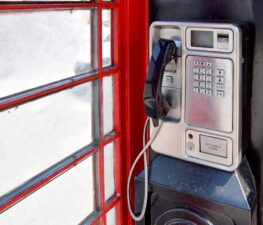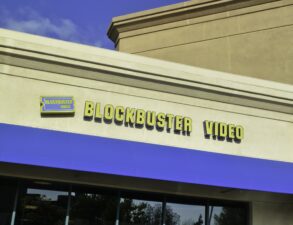
In the ever-evolving workforce landscape, many professions that were once staples of daily life have faded into obscurity, replaced by advancements in technology and changes in societal needs. While Boomers might reminisce about these jobs, Gen Z may find them unfamiliar, highlighting the significant shifts in employment trends over the decades. Here, we explore 11 once-popular professions that are now largely relics of the past, offering a glimpse into a world that today’s youth might not recognize.
1. Switchboard Operator

Before the advent of digital communications and automated systems, switchboard operators were essential in connecting calls to their respective destinations. Seated in front of panels filled with plugs and cables, these operators manually connected one line to another to establish a call. For Boomers, the role of a switchboard operator was a common sight in businesses and public institutions. However, this job has virtually disappeared with the rise of modern telecommunication technologies.
2. Typewriter Repairman

In an era dominated by computers and digital devices, the typewriter repairman might seem like a character from a vintage novel to Gen Z. Typewriters were once ubiquitous in offices and homes, requiring regular maintenance and repair. Skilled repairmen would travel from one office to another, fixing stuck keys and realigning type bars. As technology progressed and computers became the norm, the demand for typewriter repair services dwindled, leading to the extinction of this profession.
3. Milkman

The daily delivery of fresh milk by the local milkman was once a cherished routine in many households. Milkmen would deliver bottles of milk directly to consumers’ doorsteps, often before dawn. This service provided a personal touch and convenience that modern supermarkets cannot replicate. However, changes in preservation technology and the rise of self-service grocery stores have made this profession obsolete.
4. Elevator Operator

Elevator operators once played a vital role in safely transporting passengers between the floors of high-rise buildings. Dressed in a uniform, these operators managed the elevator’s operations, announced floors, and ensured passenger safety. Today, automated elevators with push-button controls have eliminated the need for this occupation, making it a quaint memory of a bygone era.
5. Payphone Coin Collector

Before the ubiquity of cell phones, payphones were a common sight on city streets and in public buildings. Payphone coin collectors were responsible for collecting the coins deposited into these machines. This task involved not just the physical collection but also maintenance and minor repairs to the payphone units. As mobile phones became more accessible and widespread, the demand for payphones plummeted, rendering the profession of coin collector virtually obsolete.
6. Video Store Clerk

In a time before streaming services like Netflix and Hulu, renting a movie meant a trip to the local video store. Video store clerks would manage rentals, recommend movies, and organize shelves filled with VHS tapes and later DVDs. This job was a staple of entertainment retail through the 1980s and 1990s but has since been rendered obsolete by digital streaming technology.
7. Film Projectionist

Film projectionists were once crucial in the movie-going experience, tasked with operating projectors and managing film reels in cinemas. This required a detailed understanding of film mechanics and projection equipment. With the digitalization of cinemas and the introduction of digital projectors, the traditional skills of a film projectionist aren’t necessary in most theaters.
8. Bank Teller

While this is one of the professions on this list that’s not entirely extinct, the role of bank tellers has significantly diminished with the rise of online banking and ATMs. Boomers may recall visiting a bank to withdraw cash, deposit checks, or seek financial advice, interacting directly with tellers. Today, Gen Z is more likely to use digital banking services, reducing the frequency of in-person bank visits and the demand for tellers.
9. Newspaper Delivery Boy

The newspaper delivery boy, often on a bicycle, tossing papers onto front porches each morning, is an iconic image from the past. This job was a typical first job for many young people, providing them with their first taste of responsibility and earning money. As the digital age has led to a decline in print media consumption, this job has seen a significant reduction.
10. Travel Agent

Travel agents once held the keys to vacation planning, providing personalized service in booking flights, hotels, and tours. However, with the advent of online travel booking sites, the need for traditional travel agents has decreased dramatically. While they still exist, their role is more specialized, focusing on complex travel itineraries and luxury accommodations rather than general travel services.
11. Library Card Cataloguer

Before the digitalization of library catalogs, library card cataloguers meticulously indexed books and other materials using physical cards. This profession required significant organizational skills and attention to detail. Today, digital catalogs allow patrons to search for and locate library materials instantly online, making the manual card cataloguer’s role redundant.
These Professions Are Fond Memories for Boomers but Historical Oddities to Gen Z

These professions paint a vivid picture of how the world of work has transformed and been influenced by technological advances and shifts in consumer behavior. While Boomers may look back fondly on these roles, Gen Z might view them as historical curiosities, illustrating the dynamic nature of employment and the continuous evolution of the job market.
Read More:
8 Boomer “Complaints” That Are 100% Justified
20 Reasons Why Baby Boomers Are Blamed for Today’s Economic Challenges
Catherine is a tech-savvy writer who has focused on the personal finance space for more than eight years. She has a Bachelor’s in Information Technology and enjoys showcasing how tech can simplify everyday personal finance tasks like budgeting, spending tracking, and planning for the future. Additionally, she’s explored the ins and outs of the world of side hustles and loves to share what she’s learned along the way. When she’s not working, you can find her relaxing at home in the Pacific Northwest with her two cats or enjoying a cup of coffee at her neighborhood cafe.

